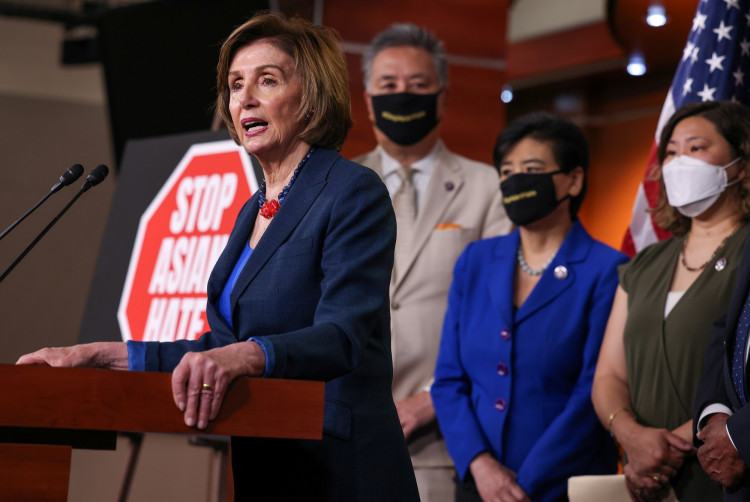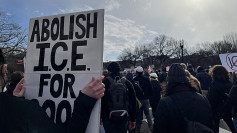The U.S. Congress has approved a new bill aimed at addressing a rise in hate crimes against Asian Americans and Pacific Islanders. Both Democratic and Republican officials are calling on the government to find solutions to the growing problem.
The bill was passed by the House on a 364-62 vote. The bill aims to expedite the review of hate crimes by giving the Justice Department more oversight. It also grants additional resources to local law enforcement agencies to help in their investigations and identifications of hate crimes, most of which go unreported in America.
U.S. President Joe Biden - who has repeatedly denounced the spate of brutal attacks against minorities - said he will sign the bill.
"Asian Americans have been screaming out for help, and the House and Senate and President Biden have clearly heard our pleas," Rep. Grace Meng, who led the efforts to pass the bill, said.
Experts said the rise in crimes driven by racial discrimination has partially been caused by the pandemic. The international health crisis has invigorated deep-seated biases, with some officials also blaming former President Donald Trump for his continued use of terms such as "China Virus" and "Kung Flu."
The growing discrimination of Asian Americans and Pacific Islanders throughout the country led to several attacks. Last year, a young family was the victim of a grocery store attack in Texas. In February, an 84-year-old Asian man died after he was attacked in San Francisco. In March, a gunman shot and killed six Asian women in Georgia.
While most groups have applauded the passing of the new bill, some activist groups claimed the legislation may be misguided. More than 100 activist groups signed a recent statement opposing the bill, arguing that it relied too much on empowering law enforcement instead of addressing the underlying issues.
"We have had hate crimes laws since 1968. It's been expanded over and over again, and this new legislation is more of the same. These issues are about bias, but also rooted in inequality, and lack of investment and resources for our communities. Not a shortage of police and jails," the activist group GAPIMNY-Empowering Queer & Trans Asian Pacific Islanders said.






